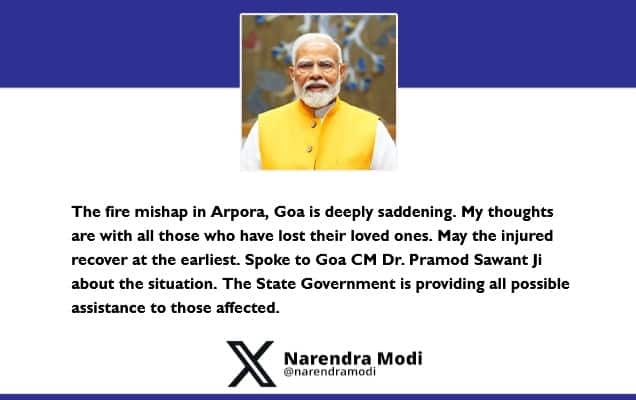जागतिक आरोग्य संघटनेच्या, जागतिक पारंपरिक औषधी केंद्राचे भारत हे महत्वाचे स्थान असल्याचा आनंद पंतप्रधान नरेंद्र मोदी यांनी,व्यक्त केला आहे. हे केंद्र आपल्या ग्रहाला अधिक आरोग्यदायी बनवण्यासाठी सहाय्य करेल आणि आपल्या समृद्ध पारंपारिक पद्धतींचा लाभ जगाला मिळवून देईल,अशी आशा यावेळी व्यक्त केली.
आयुष मंत्रालय आणि जागतिक आरोग्य संघटना (WHO) यांच्यात असे केंद्र स्थापन करण्यासाठी यजमान पद स्विकारण्याच्या करारावर स्वाक्षरी झाली आहे.
आयुष मंत्रालय आणि जागतिक आरोग्य संघटना (WHO) यांच्या ट्विटला प्रतिसाद देताना पंतप्रधान म्हणाले.
"पारंपारिक औषधांसाठी अत्याधुनिक असे जागतिक आरोग्य संघटनेचे जागतिक केंद्र असणे हा भारताचा गौरव आहे. हे केंद्र आपल्या ग्रहाला अधिक आरोग्यदायी बनवण्यासाठी सहाय्य करेल आणि आपल्या समृद्ध पारंपारिक पद्धतींचा लाभ जगाला मिळवून देण्यासाठी योगदान देईल."
"पारंपारिक औषधांसाठी अत्याधुनिक असे जागतिक आरोग्य संघटनेचे जागतिक केंद्र भारत असणे हा भारताचा गौरव आहे. हे केंद्र आपल्या ग्रहाला अधिक आरोग्यदायी बनवण्यासाठी सहाय्य करेल आणि आपल्या समृद्ध पारंपारिक पद्धतींचा लाभ जगाला मिळवून देण्यासाठी योगदान देईल."
Ministry of #Ayush has today signed the Host Country Agreement with World Health Organization for establishing WHO Global Centre for Traditional Medicine in India at Jamnagar, Gujarat, with its interim office at the Institute of Training and Research in Ayurveda in Gujarat. pic.twitter.com/w9WBV4gdgJ
— Ministry of Ayush (@moayush) March 25, 2022
Traditional medicines and wellness practices from India are very popular globally. This @WHO Centre will go a long way in enhancing wellness in our society. https://t.co/fnR4ZHS3RD
— Narendra Modi (@narendramodi) March 26, 2022













